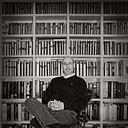What is the Paradox of Love?
“Love occupies a central place in people’s expectations and wishes, but these often remain unfulfilled,” writes philosophy professor Aaron Ben-Zeev (“The Love Paradox,” Psychology Today, April 21, 2013). “Love songs, novels, and movies have emphasized the great hopes and profound happiness associated with love, as well as the great disappointments and profound pain that love generates. Our hearts are enlarged by love, but by the same token, they can also be broken.” Ah, the paradox of love…
Over the years, several networks have discovered that love — with its inherent complexities and paradoxes — is incredibly entertaining. Millions of viewers strap onto the rollercoaster of love to virtually experience its inevitable highs and lows through the lives of those brave (or foolish, depending on your perspective) enough to appear on reality-shows like The Bachelor, The Bachelorette, Love at First Sight, Love is Blind, and their ilk. The viewers become, in some respects, like couple therapists who can observe the profound range of emotions associated with love. But alas, love is inherently paradoxical — something that psychologists and philosophers have observed and written about for decades. Here are some of the key paradoxes of love.
“You will notice that what we are aiming at when we fall in love is a very strange paradox. The paradox consists of the fact that, when we fall in love, we are seeking to re-find all or some of the people to whom we were attached as children. On the other hand, we ask our beloved to correct all of the wrongs that these early parents or siblings inflicted upon us. So that love contains in it the contradiction: The attempt to return to the past and the attempt to undo the past.”
Spoken by Professor Levy in the film, Crimes and Misdemeanors (1989) written and directed by Woody Allen.
“I hold this to be the highest task of a bond between two people: that each should stand guard over the solitude of the other. For, if it lies in the nature of indifference and of the crowd to recognize no solitude, then love and friendship are there for the purpose of continually providing the opportunity for solitude. And only those are the true sharings which rhythmically interrupt periods of deep isolation.” [The paradoxical longing for independence and intimacy with another person.]
Rainer Maria Rilke, Rilke on Love and Other Difficulties (1975)
“In motherly love the relationship between the two person involved in one of inequality; the child is helpless and dependent on the mother. In order to grow, it must become more and more independent, until he does not need mother any more. Thus, the mother-child relationship is paradoxical and, in a sense, tragic. It requires the most intense love on the mother’s side, yet this very love must help the child grow away from the mother, and to become fully independent. It is easy for any mother to love her child before this process of separation has begun — but it is the task in which most fail, to love the child and at the same time to let it go — and to want to let it go.”
Erich Fromm, The Sane Society (1955)
“Paradoxically, the ability to be alone is the condition for the ability to love.”
Erich Fromm, The Art of Loving (1962)
“In love the paradox occurs that two beings become one and yet remain two.”
Erich Fromm, The Art of Loving (1962)
“Love rests on two pillars: surrender and autonomy. Our need for togetherness exists alongside our need for separateness. One does not exist without the other. With too much distance, there can be no connection. But too much merging eradicates the separateness of two distinct individuals. Then there is nothing more to transcend, no bridge to walk on, no one to visit on the other side, no other internal world to enter. When people become fused — when two become one — connection can no longer happen. There is no one to connect with. Thus separateness is a precondition for connection: this is the essential paradox of intimacy and sex.”
Esther Perel, Mating in Captivity (2006)
“The inability to love and accept yourself and your humanity is at the heart of many illnesses. To be loved and accepted, you must start by loving yourself. If you have traits that you consider unlovable, you must love them anyway… it’s a paradox.”
Christiane Northrup, A Daily Dose of Women’s Wisdom (2017)
“Does [being programmed to connect with a significant other] mean that in order to be happy in a relationship we need to be joined with our partner at the hip or give up other aspects of our life such as our careers or friends? Paradoxically, the opposite is true! It turns out that the ability to step into the world on our own often stems from the knowledge that there is someone beside us who we can count on — this is the dependency paradox.”
Amir Levine, Attached: The New Science of Adult Attachment and How It Can Help You Find and Keep Your Love (2010)
________________________________________________________________
If you enjoyed this essay, you might enjoy my book, Serendipitous Discoveries from the Bookshelf, based on my popular blog, Atkins Bookshelf. The blog explores the world of ideas — through books, movies, music, quotations, and the English language — for the intellectually curious. At the heart of Atkins Bookshelf is a lifelong love of books and literature; its goal is to educate, entertain, and inspire.
The book can be found here.
The blog can be found here.
To learn more about Alexander Atkins Design, visit https://alexatkinsdesign.com/
